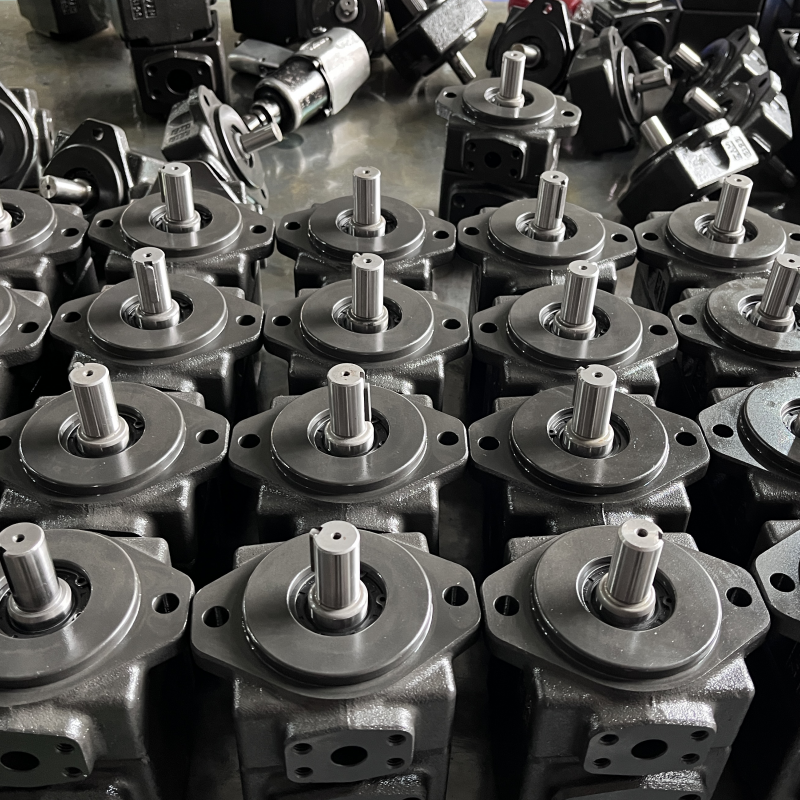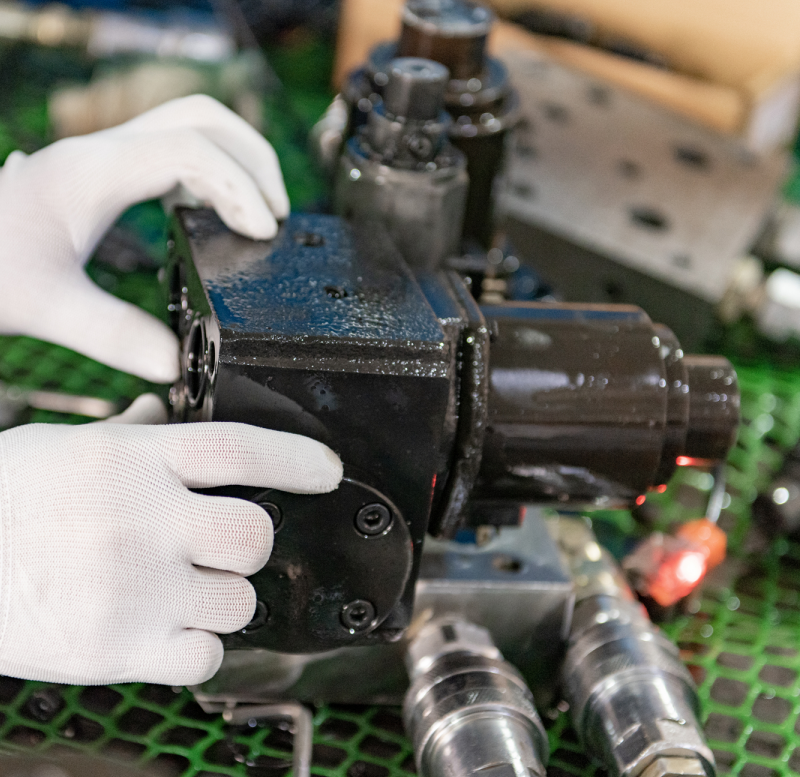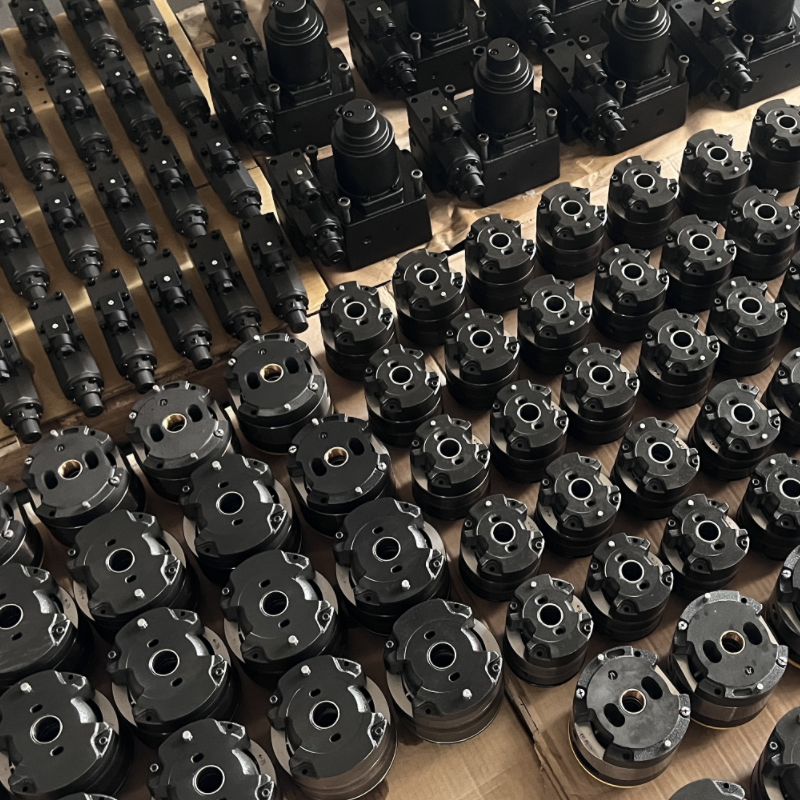Common noises of several hydraulic parts
Noise from plunger pump or motor
1.Cavitation is one of the main causes of excessive noise in hydraulic pumps.
When the oil is mixed with air, it is easy to form cavitation phenomenon in its high-pressure area, and propagate in the form of pressure wave, causing the oil to oscillate, resulting in cavitation noise in the system. The main reasons are:
① The oil filter and oil inlet pipe of the hydraulic pump are blocked or the viscosity of the oil is too high, which can cause the vacuum at the oil inlet of the pump to be too high, allowing air to infiltrate.
② The shaft end oil seal of the hydraulic pump and pilot pump is damaged, or the oil inlet pipe is not well sealed, causing air to enter.
③The oil level of the fuel tank is too low, so that the oil inlet pipe of the hydraulic pump is directly sucked empty.
④ When high noise occurs during the operation of the hydraulic pump, the above-mentioned parts should be checked first, and the problems should be dealt with in time.
2.The hydraulic pump valve plate is also one of the important components that easily cause noise.
During use, the surface of the valve plate is worn or sludge is deposited on the opening of the unloading groove, which will shorten the unloading groove and change the unloading position, resulting in oil trapping, which in turn causes high noise. In the normal repairing process, the unloading groove of the repaired valve plate will also be shortened. If it is not properly slender in time, it will also generate a lot of noise. During the assembly process, the large unloading groove of the valve plate must be installed in the high-pressure chamber of the pump, and the direction of its sharp angle must be opposite to the direction of rotation of the cylinder, otherwise it will also bring a lot of noise to the system.

Noise of relief valve
The overflow valve is prone to high-frequency noise, which is mainly caused by the unstable performance of the pilot valve, that is, the noise generated by the air vibration caused by the high-frequency oscillation of the pressure in the front cavity of the pilot valve. The main reasons are:
① Air is mixed into the oil, and cavitation is formed in the front chamber of the pilot valve, causing high-frequency noise. At this time, the air should be exhausted in time and the re-entry of outside air should be prevented.
②The needle valve is excessively worn due to frequent opening during use, so that the cone surface of the needle valve cannot fit tightly with the valve seat, resulting in unstable pilot flow, pressure fluctuations and noise. At this time, it should be repaired or replaced in time.
③ The pressure regulating function of the pilot valve is unstable due to the fatigue deformation of the spring, which makes the pressure fluctuate greatly and cause noise. At this time, the spring should be replaced.

hydraulic cylinder noise
① Air is mixed in the oil or the air in the hydraulic cylinder is not completely exhausted, and cavitation occurs under high pressure, which causes loud noise. At this time, the air must be exhausted in time.
②If the cylinder head oil seal is too tight or the piston rod is bent, noise will be generated due to tension during the movement. At this time, the oil seal must be replaced in time or the piston rod must be straightened.

Pipeline noise
Too many dead bends in the pipeline or loose fixing clips can also generate vibration and noise. Therefore, dead bends should be avoided as far as possible in the pipeline layout, and loose clips must be tightened in time.
